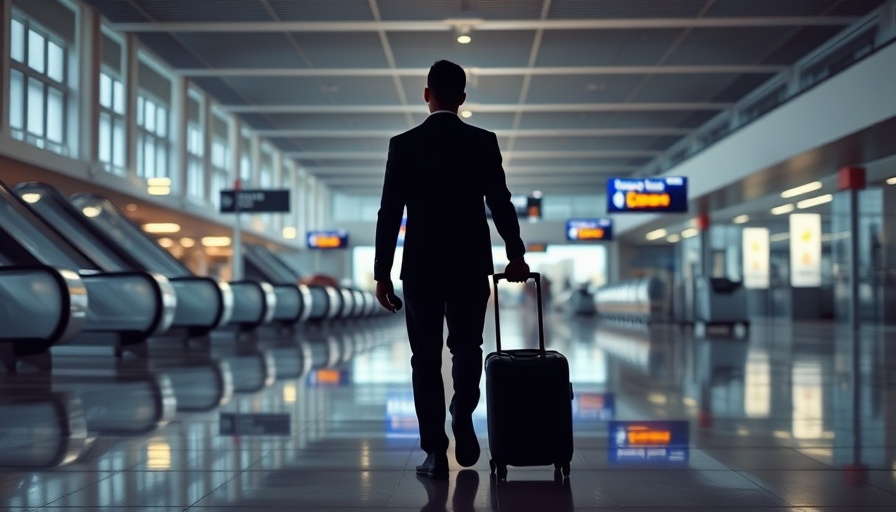
The U.S. Implements New $15,000 Visa Bond Requirement for Foreign Visitors
In a bold move to combat illegal immigration, the Trump administration recently announced a pilot program mandating foreign visitors from specific countries to pay bonds of up to $15,000 before being granted entry into the United States. This initiative specifically targets tourists and business travelers from nations with high visa overstay rates, aiming to protect national security.
Motivations Behind the Bond Requirement
The push for visa bonds arises from concerning trends identified by the Department of Homeland Security. Data indicates that over 500,000 individuals who entered the United States via air or sea ports in 2023 likely remained beyond the expiration of their authorized stay. In light of these statistics, the administration views these bonds as "key pillars" in its strategy to mitigate the risks associated with visa overstays and enhance border security.
Details of the Bond Requirement and Its Implications
Under the program, visitors will be required to pay a bond of at least $5,000, with the amount subject to variation depending on the applicant's country of origin. Those who adhere to their visa limitations will receive their deposit back, while non-compliance would result in forfeiture. The Department of Homeland Security has yet to disclose the specific countries impacted, although these will be determined based on the collected overstay data.
Understanding the Broader Context of Immigration Policy
This initiative marks one of many actions taken by the Trump administration to redefine immigration policy in the U.S. Throughout his 2024 campaign, President Trump emphasized addressing illegal immigration as a top priority, aiming to tighten restrictions and enhance the vetting process for foreign visitors. Critics argue that such measures could deter legitimate travelers and harm international relations, especially in an era where global connectivity is more crucial than ever.
Potential Repercussions for Travelers and the Tourism Industry
The introduction of these bond requirements could significantly affect the tourism sector, particularly during the post-pandemic recovery phase. Experts express concern that such financial barriers might discourage potential visitors from countries with already low travel rates. However, proponents argue that it is a necessary step to ensure compliance with visa regulations, offering peace of mind regarding national security.
Looking Ahead: Prospects for the Program's Expansion
The initial 12-month pilot phase will not only apply to foreign nationals from countries with high overstay rates but also extend to areas where screening and vetting processes are seen as inadequate. As the program progresses, the administration may expand its reach to include additional nations, substantially changing how international travel is managed in the U.S.
As this program rolls out, stakeholders in the travel and tourism industry will be closely watching its impact. Adaptability and compliance strategies will be critical for affected countries to navigate these new regulations successfully.
For travelers planning to visit the U.S., understanding these new requirements and preparing financially will be essential in ensuring a smooth visa application process. By staying informed and compliant, visitors can not only safeguard their interests but also contribute positively to the global community.
Call to Action
To ensure you are well-informed about travel regulations and how they may affect your next trip, consider subscribing to travel updates from official government sources or reputable travel organizations. Being proactive is the key to enjoying your journeys without unexpected financial or legal hurdles.
 Add Row
Add Row  Add
Add 




Write A Comment